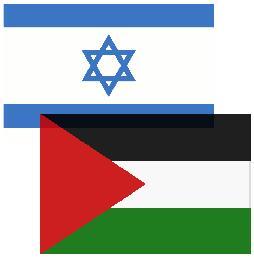Sabotaging Peace: The Real Motive Behind the Freedom Flotilla Attack

Worldwide outrage and condemnation of Israel’s brazen, unprovoked attack on the Gaza Freedom Flotilla, which killed nine activists and injured dozens, was predictable and justified. Many remained puzzled, though, as to why Israel thought it necessary to send in elite, rappelling commandos to confront an unarmed civilian flotilla carrying 10,000 tons of humanitarian aid to the beleaguered territory. The six-ship convoy was co-sponsored by a Turkish humanitarian organization and sailed under Turkey’s flag when it was raided in international waters.
The consensus was that Israel was “sending a message.” Anyone who dared challenge its naval blockade and siege of Gaza would meet a similar fate.
This is a correct yet superficial analysis. The real motive behind the Israeli assault is far more sinister: to deliberately undermine (if not entirely abort) consequential, substantive peace talks with the Palestinians and Syrians, and repay the Turks for negotiating a nuclear fuel-swap deal with Iran (which significantly set back Israel’s case for military intervention).
In essence, it was done to sabotage peace.
“We have to set up a dynamic state bent upon expansion,” David Ben Gurion once famously stated. And peace, stability and diplomacy are obstacles to Zionism’s tenets of land acquisition and subjugation of indigenous peoples.
There have been calls to advance the indirect, United States-mediated proximity talks taking place between the Israeli government and Palestinian leader Mahmoud Abbas. This now seems unlikely. The opening sentence of a May 31 Associated Press report inferred similarly:
“Israel’s bloody, bungled takeover of a Gaza-bound Turkish aid vessel is complicating U.S.-led Mideast peace efforts, deepening Israel’s international isolation …”
That was exactly the intent. Israel can easily wither “international isolation” to the extent the U.S. will continue to protect it from meaningful sanction. Israel actually covets isolation; it permits it to operate in a “nothing to lose” mode. Expropriation of Palestinian land accelerates and its reckless behavior goes unchecked.
Additionally, the attack effectively severs relations with Turkey. Israel wants no part of a non-military solution to the Iranian nuclear issue like the one just brokered by Turkey and Brazil. Turkey’s role in mediating between Syria and Israel, for all the perfunctory plaudits the latter gave it, was actually unwelcome and is now too off the table.
It would not be the first time that Israel deliberately provoked a crisis at the expense of civilian lives to further its expansionist agenda, justify war, or use as a campaign issue:
Six weeks before Israel’s 1996 elections, Prime Minister Shimon Peres launched operation “Grapes of Wrath,” a two-week military blitz in Lebanon conducted in the midst of a two-decade occupation of the south. During it, the Israelis massacred 106 civilians that had sought shelter at a United Nations compound in Qana.
In September 2000, four months before his election, Prime Minister Ariel Sharon (accompanied by 1,000 riot police), paraded through the Haram al-Sharif compound in Jerusalem, which includes al-Aqsa mosque—the third holiest site in Islam—leading to the Second Intifada.
The United Nations Human Rights Commission, in a resolution titled “Grave and massive violations of the human rights of the Palestinian people by Israel,” condemned “the provocative visit to Al-Haram al-Sharif on 28 September 2000 by Ariel Sharon, the Likud party leader, which triggered the tragic events that followed in occupied East Jerusalem and the other occupied Palestinian territories, resulting in a high number of deaths and injuries among Palestinian civilians.”
Sharon then campaigned on putting down the intifada he instigated.
1,500 Lebanese were killed, one million displaced, and the country’s civil infrastructure decimated during Israel’s failed bid to destroy Hezbollah in the July 2006 war. The conflict started after two Israeli commandos were caught snooping around the Lebanese border town of Aitaa al-Chaab. After the years of repeated, illegal violations of Lebanese airspace failed to provoke a response, the soldiers’ capture was the pretense needed to wage the disproportionate Israeli onslaught that followed.
The flimsy rationale upon which the savage 2008-2009 Gaza invasion was based has already been discussed.
The latest Israeli operation against 700 activists delivering humanitarian supplies to Gaza is only the latest in a series of criminal endeavors meant to quash any hope for peace, negotiation or conflict resolution between Israel, its neighbors and the Palestinians.
Mission accomplished.
Rannie Amiri is an independent Middle East commentator. He may be reached at: [email protected]

